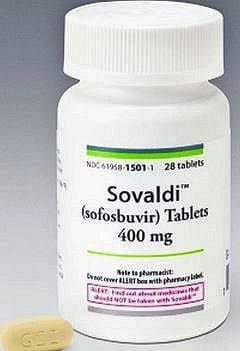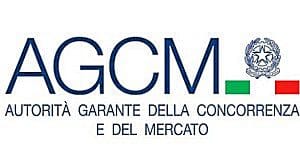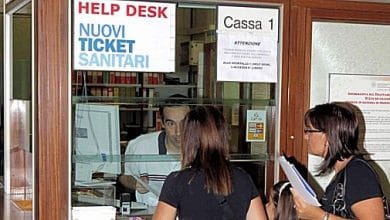
Agreement reached, but “blockbuster” products are getting more and more expensive. About 30,000 patients will benefit from it. All the others, over 300 thousand, will have to wait.
PAOLO RUSSO – 01/10/2014 – THE PRESS Cheers
ITALIAN INSTITUTE OF TECHNOLOGY
 Months of negotiations and a last tug of war last night, then the longed-for agreement has finally arrived that will allow the most seriously ill hepatitis C patients access to sofosbuvir, the super-expensive pill that eradicates the virus in 12-24 weeks. The agreement between the manufacturer Gilead and Aifa, the ministerial drug agency, "will make it possible to treat the largest number of patients in Europe", the same agency announced. However, he did not want to divulge any information on the price, which should have settled down to almost half from the starting 58 thousand euros for a therapeutic cycle, even if the figures should vary according to sales volumes.
Months of negotiations and a last tug of war last night, then the longed-for agreement has finally arrived that will allow the most seriously ill hepatitis C patients access to sofosbuvir, the super-expensive pill that eradicates the virus in 12-24 weeks. The agreement between the manufacturer Gilead and Aifa, the ministerial drug agency, "will make it possible to treat the largest number of patients in Europe", the same agency announced. However, he did not want to divulge any information on the price, which should have settled down to almost half from the starting 58 thousand euros for a therapeutic cycle, even if the figures should vary according to sales volumes.
The drug will be guaranteed to chronic hepatitis patients, according to "progressive criteria of suitability", which will be defined by an ad hoc commission. In any case, patients with cirrhosis, liver cancer, those co-infected with HIV and those awaiting a transplant should be included in the treatment. About 30 thousand patients. All the others, over 300 thousand, will have to wait.
But the case of sofosbuvir is only the most striking of what Big Pharma calls a "blockbuster". They are not blockbuster films but "golden pills", capable of billionaire receipts, which threaten to bring welfare systems to their knees all over the world. For about fifteen years there have been none, then with investments in research of one billion per drug, now the industry is churning out a flurry. In addition to sofosbuvir, there are other products against hepatitis C which, such as ledipasvir or simeprevir, promise to eradicate the virus, without the toxic interferon. A chapter that alone is worth 1-2 billion euros. Then there is the barrage of monoclonal antibodies, effective against the most varied and serious pathologies, from Alzheimer's to multiple sclerosis, passing through some types of cancer. Average cost, according to Aifa, around 20 thousand euros per patient. And then there are also the most effective antiretrovirals to better keep HIV at bay. All products costing hundreds if not thousands of euros a box, when they hit the shelves of pharmacies.
But where the "blockbusters" promise miracles for patients and trouble for the custodians of public accounts is in the oncology area. "They are products with unsustainable costs, which fluctuate between 30 and 100 thousand euros per patient per therapeutic cycle", warns Professor Gianpiero Fasola, president of "Cipomo", the board of leading oncologists. “Recently – he explains – medicines have arrived, such as jeroj, potentially capable of ensuring a long-survival for patients with metastatic melanoma who had their fate sealed. But the cost, which dropped after the negotiation conducted by AIFA, is still around 75,000 euros per patient. For this reason – he recommends – it becomes essential to establish the relationship between the actual benefit of medicines and the cost in order to decide, in the end, what is sustainable for a country and what is not ». Also for this reason, the «cost-sharing» mechanism was recently established in Italy, with which the State pays for the treatment only for patients who have effectively benefited from the new «super-cures».
Methods that are not enough, however, to curb the costs for the "golden pills", which due to their particularity end up in band H of the handbook, that of products dispensed by hospitals. An expense that this year is heading towards a breakthrough of 1.4 billion, to which, according to AIFA, "another several hundred million" will be added shortly, generated by the new therapies arriving on the market. Where, just to curb the expense, the drugs often arrive late. One and a half years old, denounces the "Synthesis" report of hospital pharmacists and oncologists which will be presented on 7 October in Rome.
Often the Regions block everything to postpone expenses, denounces the Cittadinanzattiva report «Pit salute». Medicines already approved by AIFA and the European agency EMA are then blocked for seven to 17 months by revaluations at the local level to include them in the regional handbooks.
Then there are drugs such as aflibercept against prostate cancer which will only enter the paradise of range A of loanable products on 13 October, after having "stayed" for over a year in a hybrid range "CNN", which seems that of nobody's children, given that they are medicines paid for by hospital budgets. Which, when they are stained red, do not dispense.
Expedients good only to plug, but not plug the leak. The European health ministers know this, who last week invited their drug agencies to coordinate to negotiate united against the lords of the "golden pills". And get prices that don't shatter healthcare welfare.
Spain. Sanidad will pay up to 125 million euros for Sovaldi the first year of marketing
EL GLOBAL / MADRID Wednesday, 01 October 2014
 The Comisión Interministerial de Precios de los Medicamentos, dependent on the Ministerio de Sanidad, has given its approval to the financing of the Sovaldi medicament, manufactured by the Gilead company, for the treatment of certain groups of patients affected by the infection by the virus of the hepatitis C. Los cálculos efectuados por Sanidad estiman un techo de gasto en sofosbuvir de 125 millones de euros during the first year of marketing.
The Comisión Interministerial de Precios de los Medicamentos, dependent on the Ministerio de Sanidad, has given its approval to the financing of the Sovaldi medicament, manufactured by the Gilead company, for the treatment of certain groups of patients affected by the infection by the virus of the hepatitis C. Los cálculos efectuados por Sanidad estiman un techo de gasto en sofosbuvir de 125 millones de euros during the first year of marketing.
The financing agreed by the Interministerial Commission is for the use of Sovaldi in the stages of enferment which need effective treatment in actuality. Thus, you must respond to the Informe de Posicionamiento Terapéutico (IPT), elaborated by the Spanish Agencia de Medicamentos y Productos Sanitarios in collaboration with the Autonomous Communities and with the scientific societies, which have not yet been published.
The drug will be available to clinics from next November.
 The interministerial committee on drug prices, dependent on the Ministry of Health, has given its approval to the financing of the drug Sovaldi, manufactured by Gilead, for the treatment of certain groups of patients affected by hepatitis C virus infection. The calculations made by Healthcare estimates the expenditure ceiling that sofosbuvir will reach during the first year of marketing at €125,000,000.
The interministerial committee on drug prices, dependent on the Ministry of Health, has given its approval to the financing of the drug Sovaldi, manufactured by Gilead, for the treatment of certain groups of patients affected by hepatitis C virus infection. The calculations made by Healthcare estimates the expenditure ceiling that sofosbuvir will reach during the first year of marketing at €125,000,000.
The funding approved by the Interministerial Commission is to use Sovaldi in the disease at a stage without effective treatment at the moment. Thus, it will be necessary to respond to the Therapeutic Positioning Report (IPT), developed by the Spanish Agency for Medicines and Health Products in collaboration with the autonomous regions and scientific societies, which has not yet been published.
The drug will be available to clinicians starting November 1st.





